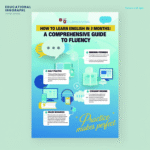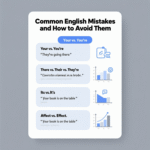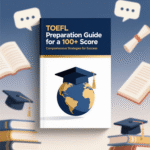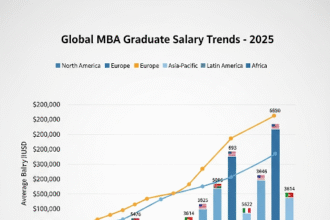In the fast-evolving job market of 2025, preparing for a job interview is more critical than ever. With technological advancements, shifting workplace dynamics, and increasing competition, candidates must showcase their skills, adaptability, and cultural fit to secure their desired roles. We understand the stakes are high, and a well-prepared response can make the difference between landing a dream job and missing an opportunity. This comprehensive guide outlines the 10 common job interview questions most likely to be asked in 2025, paired with expertly crafted answers to help candidates stand out. Each section provides actionable strategies, real-world examples, and insights into what hiring managers seek, ensuring candidates are equipped to navigate any job interview scenario with confidence.
- Why Preparation for Job Interviews Matters in 2025
- 1. Tell Me About Yourself
- 2. Why Do You Want to Work Here?
- 3. What Are Your Greatest Strengths?
- 4. What Is Your Greatest Weakness?
- 5. Why Did You Leave Your Last Job?
- 6. How Do You Handle Stress and Pressure?
- 7. What Are You Passionate About?
- 8. Where Do You See Yourself in Five Years?
- 9. Can You Describe a Time You Faced a Challenge at Work?
- 10. Do You Have Any Questions for Us?
- Additional Strategies for Job Interview Success in 2025
- Researching the Company and Role
- Practicing with the STAR Method
- Adapting to Virtual and Hybrid Interviews
- Highlighting Soft Skills
- Following Up Post-Interview
- Industry-Specific Considerations for 2025
- Common Mistakes to Avoid in Job Interviews
- Suggestions and Recommendations
- Frequently Asked Questions (FAQs)
Why Preparation for Job Interviews Matters in 2025
The job landscape in 2025 is shaped by automation, hybrid work environments, and a heightened focus on soft skills like emotional intelligence and adaptability. Hiring managers are not only evaluating technical expertise but also how candidates align with company values and demonstrate resilience in dynamic settings. Preparing for job interview questions allows candidates to articulate their value proposition clearly, addressing employer needs while showcasing their unique strengths. We’ve curated this guide to reflect the latest trends, drawing from industry insights and hiring practices to ensure relevance for 2025.
The Importance of Tailored Responses
Generic answers no longer suffice in a competitive job market. Employers expect responses tailored to the role, company, and industry. Using the STAR method (Situation, Task, Action, Result), candidates can structure answers to highlight achievements and problem-solving skills. This guide emphasizes crafting responses that resonate with specific job requirements, ensuring candidates leave a lasting impression.
1. Tell Me About Yourself
Why Employers Ask This
This open-ended question is often the first in a job interview, setting the tone for the conversation. It allows hiring managers to assess a candidate’s communication skills, confidence, and ability to summarize their professional journey. They want a concise overview that aligns with the role’s requirements, not a life story.
How to Answer
We recommend using the Present-Past-Future formula to structure the response:
- Present: Highlight current role, skills, or achievements relevant to the position.
- Past: Summarize key experiences that built those skills.
- Future: Connect aspirations to the role and company.
Example Answer
“I’m currently a project manager at a tech startup, where I oversee cross-functional teams to deliver software solutions, achieving a 20% reduction in project delivery times through streamlined workflows. With a background in computer science and five years in agile project management, I’ve honed my ability to align technical teams with business goals. Previously, I worked as a software developer, which gave me hands-on insight into coding challenges, enhancing my ability to lead technical projects effectively. I’m excited about this opportunity at [Company Name] because your focus on innovative cloud solutions aligns with my passion for driving technological advancements. My goal is to contribute to your team by leveraging my technical expertise and leadership skills to deliver impactful projects.”
Tips for Success
- Keep the response under two minutes.
- Focus on professional achievements, not personal details.
- Research the company to align your skills with its mission.
- Practice delivering the answer naturally to avoid sounding rehearsed.
2. Why Do You Want to Work Here?
Why Employers Ask This
This question gauges a candidate’s research into the company and genuine interest in the role. In 2025, employers prioritize candidates who understand their mission, culture, and industry position, as this indicates long-term commitment.
How to Answer
We advise candidates to:
- Research the company’s products, services, values, and recent achievements.
- Highlight specific aspects that resonate with personal or professional goals.
- Avoid generic responses like “It’s a great company.”
Example Answer
“I’ve followed [Company Name]’s journey in sustainable technology, particularly your recent initiative to reduce carbon emissions through AI-driven energy solutions. As an environmental engineer with a passion for sustainability, I’m inspired by your commitment to creating a positive global impact. In my previous role, I led a project to optimize energy consumption in commercial buildings, reducing costs by 15%. I’m eager to bring my expertise to [Company Name] and contribute to innovative projects that align with my values and your mission to drive eco-friendly solutions.”
Tips for Success
- Reference specific company achievements or values from their website or recent news.
- Connect personal motivations to the company’s goals.
- Show enthusiasm without exaggerating.
3. What Are Your Greatest Strengths?
Why Employers Ask This
This question assesses self-awareness and how a candidate’s skills align with the job. Employers seek strengths that directly relate to the role’s responsibilities and company needs.
How to Answer
We suggest:
- Choosing 2-3 strengths mentioned in the job description.
- Providing concrete examples using the STAR method.
- Avoiding vague or overused terms like “hard-working” without evidence.
Example Answer
“My greatest strengths are my analytical problem-solving and effective communication skills. In my role as a data analyst, I developed a predictive model that increased sales forecasting accuracy by 25%, enabling better inventory management. I also excel at translating complex data into actionable insights for non-technical stakeholders, which improved cross-departmental collaboration. For example, I presented a quarterly report to senior leadership, leading to a strategic shift that boosted revenue by 10%. These strengths would allow me to contribute to [Company Name]’s data-driven decision-making processes effectively.”
Tips for Success
- Tailor strengths to the job’s core requirements.
- Use metrics to quantify achievements.
- Highlight soft skills alongside technical expertise.
4. What Is Your Greatest Weakness?
Why Employers Ask This
This question evaluates self-awareness, honesty, and a candidate’s commitment to growth. Employers want to see how candidates address shortcomings without undermining their qualifications.
How to Answer
We recommend:
- Choosing a real but manageable weakness unrelated to core job skills.
- Explaining steps taken to improve.
- Framing the weakness positively to show growth.
Example Answer
“I’ve sometimes struggled with delegating tasks, as I prefer to ensure everything is done to my standards. In my last role as a marketing coordinator, I took on too many tasks during a campaign, which initially slowed progress. Recognizing this, I enrolled in a time management course and implemented a delegation framework, assigning tasks based on team strengths. This led to a 30% increase in campaign efficiency. I continue to refine this skill, ensuring I balance oversight with trust in my team, which I believe will benefit [Company Name]’s collaborative environment.”
Tips for Success
- Avoid clichés like “I’m a perfectionist.”
- Show proactive steps toward improvement.
- Keep the tone positive and solution-focused.
5. Why Did You Leave Your Last Job?
Why Employers Ask This
This question uncovers a candidate’s motivations and professionalism. Employers want to ensure there are no red flags, such as frequent job-hopping or conflicts, and that the candidate is seeking growth.
How to Answer
We advise:
- Staying positive, even if the departure was challenging.
- Focusing on future opportunities rather than past issues.
- Aligning the answer with career goals.
Example Answer
“After three years at my previous company, I felt ready for a new challenge that aligns more closely with my passion for innovative product development. While I valued the opportunity to streamline operations as a process engineer, I’m eager to join [Company Name] to work on cutting-edge projects in [specific field]. This role offers the chance to apply my skills in a dynamic environment, contributing to your reputation for groundbreaking solutions.”
Tips for Success
- Never badmouth a former employer.
- Highlight enthusiasm for the new role.
- If let go, briefly explain without dwelling on negatives.
6. How Do You Handle Stress and Pressure?
Why Employers Ask This
In 2025’s fast-paced workplaces, employers need candidates who can thrive under pressure. This question assesses resilience, problem-solving, and emotional intelligence.
How to Answer
We suggest:
- Sharing a specific example of managing stress effectively.
- Highlighting coping strategies like prioritization or mindfulness.
- Connecting the answer to the job’s demands.
Example Answer
“In my role as a customer service manager, I faced high-pressure situations during peak seasons, managing a team of 15 while handling escalated customer issues. For instance, during a product recall, I prioritized tasks by creating a triage system, collaborated with the team to address urgent cases, and maintained open communication with customers. This approach resolved 95% of complaints within 24 hours. I also practice mindfulness techniques to stay calm, which I believe would help me excel in [Company Name]’s fast-paced environment.”
Tips for Success
- Use a real example with measurable outcomes.
- Emphasize proactive strategies.
- Relate the answer to the job’s challenges.
7. What Are You Passionate About?
Why Employers Ask This
This question reveals a candidate’s motivations and cultural fit. Employers want to see enthusiasm and alignment with the company’s mission or the role’s responsibilities.
How to Answer
We recommend:
- Choosing a passion relevant to the job or industry.
- Providing examples of pursuing that passion.
- Connecting it to the role’s impact.
Example Answer
“I’m deeply passionate about leveraging technology to solve real-world problems, particularly in healthcare. In my previous role as a software developer, I worked on a telehealth platform that improved patient access by 40%, which was incredibly rewarding. Outside work, I volunteer with a nonprofit teaching coding to underserved communities, fostering tech literacy. I’m excited about [Company Name]’s mission to advance healthcare solutions, as it aligns with my passion for creating meaningful impact through technology.”
Tips for Success
- Be authentic but job-relevant.
- Show how the passion translates to workplace contributions.
- Avoid overly personal or unrelated topics.
8. Where Do You See Yourself in Five Years?
Why Employers Ask This
This question assesses long-term goals and commitment to the role. Employers want candidates whose aspirations align with the company’s growth trajectory.
How to Answer
We advise:
- Setting realistic, role-specific goals.
- Showing alignment with the company’s objectives.
- Emphasizing growth and contribution.
Example Answer
“In five years, I see myself as a senior data scientist at [Company Name], leading innovative projects that leverage AI to drive business outcomes. I plan to deepen my expertise in machine learning through certifications and contribute to your data-driven initiatives, such as [specific company project]. My goal is to mentor junior analysts, fostering a culture of collaboration and innovation, aligning with [Company Name]’s commitment to cutting-edge solutions.”
Tips for Success
- Research the company’s growth plans.
- Focus on professional development.
- Avoid implying the role is a stepping stone.
9. Can You Describe a Time You Faced a Challenge at Work?
Why Employers Ask This
Behavioral questions like this evaluate problem-solving, resilience, and teamwork. Employers want evidence of how candidates handle real-world challenges.
How to Answer
We suggest using the STAR method:
- Situation: Describe the context.
- Task: Explain responsibilities.
- Action: Detail steps taken.
- Result: Highlight outcomes.
Example Answer
“In my role as a marketing manager, our team faced a challenge when a major campaign underperformed, risking a 20% revenue drop (Situation). My task was to revise the strategy to meet quarterly goals (Task). I analyzed campaign data, identified low engagement on social platforms, and collaborated with the creative team to redesign targeted ads. I also negotiated with influencers to amplify reach within budget (Action). The revised campaign increased engagement by 35%, recovering projected revenue and earning client praise (Result). This experience taught me the value of agility, which I’d bring to [Company Name]’s dynamic marketing team.”
Tips for Success
- Choose a challenge relevant to the role.
- Emphasize teamwork and initiative.
- Quantify results where possible.
10. Do You Have Any Questions for Us?
Why Employers Ask This
This question tests a candidate’s preparation and engagement. Asking thoughtful questions shows genuine interest and helps assess cultural fit.
How to Answer
We recommend asking:
- Questions about company culture, team dynamics, or growth opportunities.
- Role-specific questions to clarify expectations.
- Questions about recent company developments.
Example Questions
- “How does [Company Name] foster collaboration in hybrid work environments?”
- “What are the key challenges the team faces in [specific project]?”
- “How does the company support professional development in 2025?”
Tips for Success
- Prepare 3-5 questions in advance.
- Avoid asking about salary or benefits initially.
- Show curiosity about the company’s future.
Additional Strategies for Job Interview Success in 2025
Researching the Company and Role
We emphasize thorough research to tailor responses. Review the company’s website, social media, and recent news to understand its mission, products, and challenges. For example, if applying to a tech firm, note their latest software release or AI initiative. Align answers to reflect these insights, demonstrating genuine interest.
Practicing with the STAR Method
The STAR method ensures structured, impactful responses. Practice answering behavioral questions with specific examples from past roles, focusing on measurable outcomes. For instance, when discussing leadership, highlight a project where your guidance led to a 15% efficiency increase.
Adapting to Virtual and Hybrid Interviews
In 2025, many job interviews are conducted virtually or in hybrid formats. We recommend testing technology in advance, ensuring a stable internet connection, and creating a professional background. Maintain eye contact with the camera and practice clear enunciation to convey confidence.
Highlighting Soft Skills
Soft skills like adaptability, communication, and emotional intelligence are critical in 2025. We suggest weaving these into answers, such as describing how active listening resolved a team conflict or how flexibility adapted a project to new requirements.
Following Up Post-Interview
A thank-you email within 24 hours reinforces interest and professionalism. Reference specific discussion points, such as a shared interest in the company’s sustainability goals, and reaffirm enthusiasm for the role.
Industry-Specific Considerations for 2025
Technology Sector
In tech job interviews, employers prioritize technical proficiency and innovation. Candidates should prepare to discuss tools like Python, cloud platforms, or AI frameworks. For example, a software engineer might highlight a machine learning model that improved user retention by 10%.
Healthcare Sector
Healthcare roles emphasize patient care and regulatory knowledge. Candidates should showcase empathy and compliance expertise, such as implementing a protocol that reduced patient wait times by 20%.
Finance Sector
Finance job interviews focus on analytical skills and risk management. Candidates should quantify achievements, like optimizing a portfolio to yield 12% returns, and demonstrate familiarity with 2025 financial regulations.
Creative Industries
For creative roles, portfolios and adaptability are key. Candidates should discuss projects, like a branding campaign that increased client engagement by 30%, and highlight versatility across tools like Adobe Creative Suite.
Common Mistakes to Avoid in Job Interviews
- Lack of Preparation: Failing to research the company or role can signal disinterest.
- Rambling Responses: Keep answers concise, ideally under two minutes.
- Negativity: Avoid criticizing past employers or colleagues.
- Overlooking Non-Verbal Cues: Maintain eye contact, good posture, and a confident tone.
- Not Asking Questions: Always have thoughtful questions to demonstrate engagement.
Suggestions and Recommendations
We recommend the following to maximize job interview success in 2025:
- Practice Regularly: Conduct mock interviews with a friend or mentor to refine responses.
- Stay Updated: Follow industry trends to align answers with current demands.
- Leverage Technology: Use AI tools to simulate interviews or analyze responses.
- Network Actively: Connect with industry professionals on platforms like LinkedIn to gain insights.
- Seek Feedback: After interviews, ask for constructive feedback to improve.
Frequently Asked Questions (FAQs)
- What is the best way to prepare for a job interview in 2025?
Research the company, practice common job interview questions using the STAR method, and align responses with the job description. - How can I make a strong first impression in a job interview?
Arrive early, dress appropriately, maintain eye contact, and deliver a confident handshake or virtual greeting. - What should I avoid saying in a job interview?
Avoid negative comments about past employers, vague answers, or discussing salary prematurely. - How do I handle behavioral interview questions?
Use the STAR method to structure responses, focusing on specific situations, actions, and results. - What questions should I ask the interviewer?
Ask about company culture, team dynamics, or role-specific challenges to show engagement. - How important is company research for a job interview?
Critical—it demonstrates interest and helps tailor answers to the company’s needs. - How can I address a lack of experience in a job interview?
Highlight transferable skills, relevant projects, or volunteer work, and emphasize eagerness to learn. - What if I’m nervous during a job interview?
Practice deep breathing, focus on the question, and prepare thoroughly to build confidence. - How do I discuss salary expectations in 2025?
Research industry standards and defer salary discussions until later stages, focusing on value first. - What role does body language play in job interviews?
Positive body language, like good posture and eye contact, conveys confidence and engagement. - How can I stand out in a virtual job interview?
Ensure a professional setup, test technology, and maintain eye contact with the camera. - Should I memorize my answers for a job interview?
No, but prepare key points to adapt naturally to questions for authenticity. - How do I follow up after a job interview?
Send a personalized thank-you email within 24 hours, referencing specific discussion points. - What if I don’t know the answer to a question?
Admit it honestly, express willingness to learn, and pivot to a related strength. - How can I demonstrate cultural fit in a job interview?
Align answers with the company’s values and mission, and show enthusiasm for their culture.




















